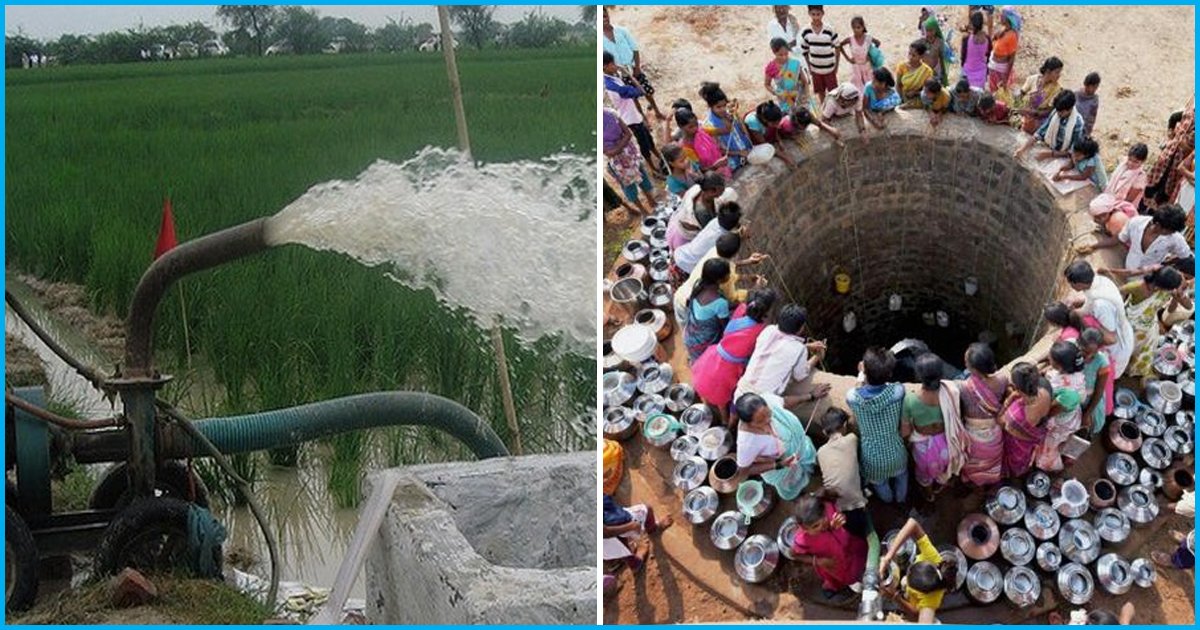
Central Ground Water Authority Proposes NOC To Extract Groundwater, Seeks Public Review
In an attempt to make an uniform regulatory framework on the use of groundwater, the Central Ground Water Authority (CGWA) has come up with draft guidelines for existing and new industries, infrastructure and mining projects that involves getting a No-Objection Certificate (NOC) from district and state-level authorities for extracting groundwater.
These guidelines are open for the public for their review and comments – they can do so by visiting the website of CGWA.
The CGWA believes that the changes proposed in the guidelines is necessary and expedient and would help to minimize the discrepancies in regulations for groundwater extraction.
What do the new guidelines involve?
- As of now, it is the CGWA that issues the NOC for withdrawal of water by industries/infrastructure/mining projects. The new guidelines will, however, decentralise the process of issuing NOC.
- Once the final guidelines are notified, the revenue heads of the district, state nodal agency/State Ground Water Authority and the CGWA will be the NOC issuing authorities depending on the quantum of groundwater extraction.
- The draft also proposes to levy a new water conservation fee based on quantum of groundwater extraction instead of the existing provision of creating recharge mechanism, including construction of artificial recharge structures, by project proponents.
- The proposed fee is based on the quantity of water used as well as the groundwater capacity of particular area-zone. The amount, therefore, varies from Rs 1 to Rs 6 per cubic metre.
- The funds raised through this new fee will be used by states for effective groundwater management.
- The final guidelines will be notified by the CGWA after analysing comments of stakeholders on this draft after 60 days.
- The draft guidelines exempt farmers from obtaining NOCs but calls for medium and large farmers to adopt water conservation measures.
- Government infrastructure projects, public water supply agencies and group housing societies with only basic amenities will be exempt from the water conservation fee.
Although the CGWA has claimed that this measure would benefit the situation, water experts have pointed out that without any assessment as to how much water is available in each aquifer, a blanket permission system would not prove beneficial. It would only pave the way for privatisation of common property resource and lead to further destruction of the groundwater lifeline in the country.
National Green Tribunal’s direction to CGWA & HUDA
The National Tribunal has been directing concerned authorities to look into the matter of groundwater depletion basing its directions on petitions filed by NGOs and activists.
The NGT on 24 October directed the CGWA and the Uttar Pradesh government to seal all illegal industrial borewells in Ghaziabad district.
A bench headed by NGT chairperson justice Swatanter Kumar asked the CGWA and the district magistrate of Ghaziabad to check illegal extraction of groundwater in compliance with an order passed in April 2015.
The NGT had also directed CGWA to submit a detailed report on industries in Ghaziabad and Hapur districts after a plea alleged that incessant extraction of groundwater has resulted in depletion of the water table.
The NGT on 23 October directed HUDA to explain why water supply to Appu Ghar cannot be stopped and also asked it to provide details of water being supplied in adjoining sectors.
The move comes in the wake of a petition filed by RTI activist Harinder Dhingra, seeking a direction to restrain Appu Ghar from using groundwater without necessary permission.
The Logical Indian hopes that the draft guidelines of the CGWA are examined properly so that a comprehensive policy can be churned out that would help in reducing the depletion of groundwater. You can review it here
 All section
All section













